Key Factors In Choosing The Right Standby Generator Size
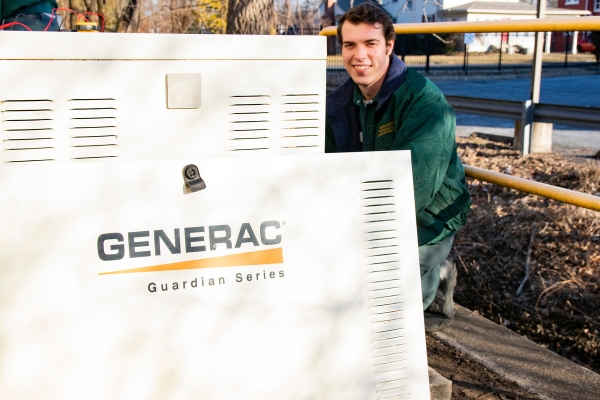
Unexpected power failures can interrupt your daily routine, but having a properly sized standby generator keeps your home running smoothly. Choosing the right unit involves thoughtful preparation and a clear understanding of your household’s energy demands.
McAllister Energy, a trusted generator service provider in Southern New Jersey, offers expert support to help homeowners select and install dependable standby generators tailored to their requirements. This article outlines the key steps to how to size a standby generator, giving you the insight needed to make a confident choice and protect your home when the power goes out.
Stay Prepared for Outages: Ensure your home stays powered and your daily life remains steady with a standby generator built to fit your needs. Contact us today!
How To Size a Standby Generator: A Practical Guide for Homeowners
Contents
- 1 How To Size a Standby Generator: A Practical Guide for Homeowners
- 2 The Importance of Proper Generator Sizing
- 3 Determining Your Household Power Requirements
- 4 Understanding Peak and Running Power Needs
- 5 Generator Options for Whole-Home Backup Power
- 6 Key Factors in Choosing the Right Generator Size
- 7 Helpful Tools for Proper Generator Sizing
- 8 Key Installation Factors for Standby Generators
- 9 Why McAllister Energy Is the Right Choice for Generator Sizing and Installation
- 10 How To Size a Standby Generator: FAQs
- 10.1 What If My Standby Generator Doesn’t Have Enough Capacity?
- 10.2 Is a Portable Generator a Suitable Alternative to a Standby Generator?
- 10.3 How Does the Electrical Panel Influence Generator Sizing?
- 10.4 Should I Factor in Future Energy Use When Sizing a Generator?
- 10.5 How Long Does a Standby Generator Typically Last?
- 11 Conclusion
- 12 Call McAllister Energy for Expert Backup Generator Services

Knowing how to choose the correct generator helps keep your home powered during critical times. Below are the essential factors to consider when determining the right standby generator size.
Keep the Lights On When It Matters: Safeguard your home and maintain comfort with a dependable whole-house generator built for your energy demands. Reach out to us today!
The Importance of Proper Generator Sizing
Choosing the correct size for your standby generator is key to ensuring safe, efficient backup power during an outage. A unit that’s too small may struggle to meet demand, risking overloaded circuits, damage to electronics, and repeated system failures.
Conversely, an oversized generator consumes more fuel than necessary, experiences accelerated wear, and leads to higher maintenance expenses. Sizing your generator to match your home’s actual energy needs helps deliver steady performance, minimizes waste, and ensures dependable operation during outages.
Determining Your Household Power Requirements
Start by identifying which appliances and systems are essential during a power outage. Focus on necessities like your HVAC system, refrigerator, lighting, sump pump, and any required medical devices. These core items help maintain comfort, safety, and daily function during prolonged outages.
Then, total the wattage needed to operate your chosen essential items. Be sure to account for running wattage (steady operation) and starting wattage (initial surge when switching on). For instance, a refrigerator may use 600–800 watts while running but needs as much as 1,200 watts to start. A typical central air system might use 3,000 running watts and up to 6,000 starting watts.
Unsure Which Generator Fits Your Home?: Let our team evaluate your power requirements and guide you to the ideal standby generator. Call us today!
Understanding Peak and Running Power Needs
When sizing a generator, it’s important to account for peak (startup) and continuous (running) power demands. The generator should handle the initial surge from appliances starting up without exceeding its limits while maintaining steady output for ongoing use. Properly balancing these needs helps ensure dependable operation and prevents excessive stress on the system.
Generator Options for Whole-Home Backup Power
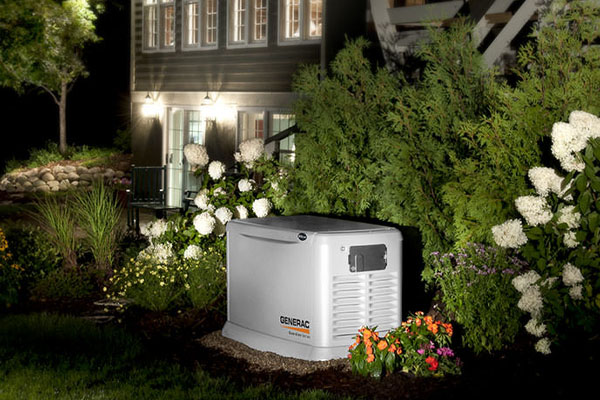
The right generator depends on how much of your home you want powered during an outage.
- Whole-House Generators: These units deliver full backup power for all major systems, including HVAC, lighting, and appliances. Best suited for larger homes or those needing uninterrupted coverage, they typically range from 22 kW to 48 kW or higher, depending on total power demands.
- Partial Home Generators: Designed to support key circuits such as lighting, refrigeration, and sump pumps, these generators provide targeted backup power. They are a more economical choice for homes with fewer critical loads and generally offer capacities between 8 kW and 20 kW.
Plan Ahead for Power Loss: Keep your home safe and comfortable with a reliable backup generator designed to meet your needs. Contact us today!
Key Factors in Choosing the Right Generator Size
Picking the right generator involves evaluating several elements that influence your home’s performance and long-term reliability.
Square Footage and Home Configuration
Your home’s size and layout directly affect the amount of power needed. Larger residences typically demand higher-capacity generators, especially if they include multiple stories or detached buildings like workshops or garages. The generator should consistently support all critical circuits throughout the entire property.
Weather and Seasonal Energy Demands
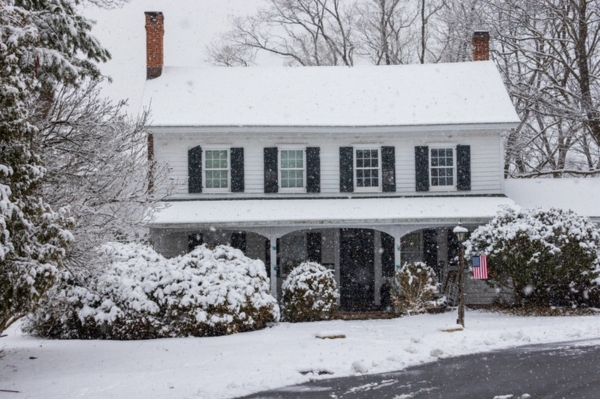
Regional climate and seasonal usage patterns play a major role in how much power your home will require. In colder areas, equipment like heating systems, electric space heaters, and heated floors consumes significant energy. Warmer climates often call for constant use of air conditioners and dehumidifiers, which also elevate power needs. Generator sizing should reflect these seasonal energy variations to ensure year-round dependability.
Strengthen Your Home’s Backup Power: We offer accurate generator sizing, professional installation, and expert support to keep your power dependable. Get in touch with us today!
Anticipating Future Power Needs
When choosing a generator, it’s important to consider how your home’s energy use might grow. Installing electric vehicle (EV) chargers, upgrading to larger appliances, or expanding smart home technology can all raise demand. Selecting a generator with some additional capacity helps ensure long-term performance and avoids the need for early replacement.
Fuel Source and Accessibility
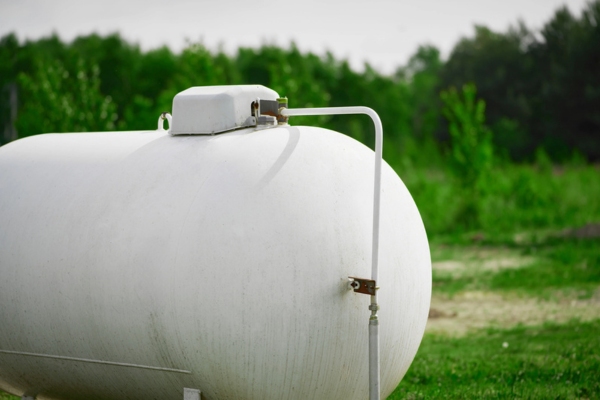
The type of fuel your generator uses, whether it’s natural gas, propane, or diesel, affects both its efficiency and size considerations. Natural gas and propane are popular residential options because they burn cleaner and work well with home systems, though availability may differ by region.
Diesel models tend to be more fuel-efficient and long-lasting, but need larger storage and more hands-on fuel management. Evaluating your fuel choices helps ensure the system fits your home’s energy demands and logistical constraints.
Secure Reliable Power at Home: Eliminate the worry of unexpected outages with our expert generator services tailored for dependable whole-home energy. Contact us today!
Helpful Tools for Proper Generator Sizing
Determining the correct standby generator size involves more than a rough estimate, though several tools can assist. Online sizing calculators can offer basic guidance by considering typical home appliances and systems.
However, these tools aren’t a replacement for expert evaluation. Depending on them alone may lead to miscalculations, such as overlooking key systems or underestimating demand, which can compromise generator performance during a power outage.
Comprehensive energy evaluations from McAllister Energy deliver accurate calculations based on your home’s specific needs. Our experts assess current power usage, anticipate future demands, and consider installation factors to provide dependable recommendations for the ideal generator size.
Key Installation Factors for Standby Generators
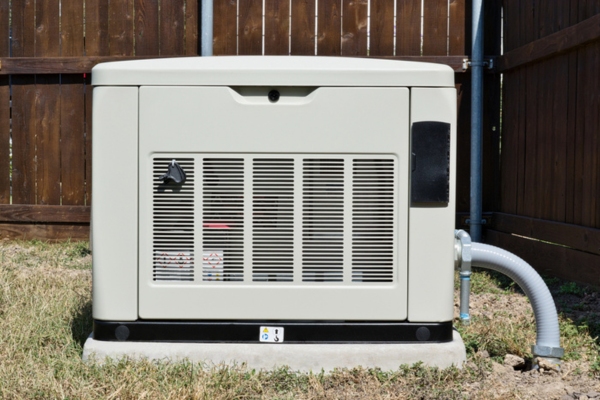
Installing a standby generator correctly involves meeting essential requirements for safety and functionality.
Location and Clearance Guidelines
Generator size affects where it can be placed, as it needs enough space and proper clearance from walls, windows, and vents for ventilation and safe operation. It should be set on a flat, stable base, usually a concrete pad, in a location that reduces noise and exhaust exposure to the home.
Permitting and Code Compliance
Installing a generator requires following local regulations and safety codes. Permits are often necessary, and the system must meet zoning and installation standards to operate safely and legally. Working with professionals who understand regional codes streamlines the process and ensures the setup meets all required guidelines for safe, dependable performance.
Need Dependable Standby Power?: Trust McAllister Energy for tailored generator solutions and expert service that keeps your home running during any outage. Contact us today!
Why McAllister Energy Is the Right Choice for Generator Sizing and Installation
McAllister Energy brings the experience and dedication homeowners rely on for accurate whole-house generator sizing and professional installation. Our team conducts detailed energy evaluations to recommend the best generator based on your home’s power demands.
We offer complete solutions, including expert installation, routine maintenance options, and dependable support to keep your generator operating at its best. With McAllister Energy, you can feel confident that your home will stay powered and protected through any outage.
How To Size a Standby Generator: FAQs

What If My Standby Generator Doesn’t Have Enough Capacity?
An undersized generator may be unable to handle your home’s energy load, forcing it to run beyond its limits. This can result in system shutdowns, damage to electronics, and reduced equipment life. Choosing the correct size helps maintain steady power and prevents overloading or performance issues.
Is a Portable Generator a Suitable Alternative to a Standby Generator?
Portable generators can be a cost-effective way to run a few essential devices during an outage, but they don’t match the reliability or convenience of standby systems. Standby generators offer automatic operation, higher power output, and whole-home coverage. They’re permanently installed and tied into your home’s fuel supply, removing the need for manual setup or frequent refueling.
How Does the Electrical Panel Influence Generator Sizing?
The capacity of your home’s electrical panel directly affects how much of your home can be powered by a generator. It defines which circuits and appliances can be supported during an outage. A professional evaluation ensures your generator is correctly matched to your panel’s load capacity and your household’s total energy use, helping prevent shortages and compatibility problems.
Stay Powered Through Every Outage: A professionally installed standby generator prepares your home for any power loss. Contact us today!
Should I Factor in Future Energy Use When Sizing a Generator?
Yes, accounting for future energy use is a smart step when sizing a generator. If you plan to install an electric vehicle (EV) charger, upgrade major appliances, or expand your home, selecting a generator with a bit of extra capacity helps accommodate these changes. This approach avoids the need for costly upgrades down the road.
How Long Does a Standby Generator Typically Last?
A well-maintained standby generator can operate reliably for 15 to 20 years or longer. Consistent care, such as oil changes, routine inspections, and timely service, helps extend its lifespan. Working with a trusted provider like McAllister Energy ensures your generator stays in peak condition and ready to deliver power whenever it’s needed.
Conclusion
When the grid goes down, getting the size right is key to dependable standby power. From evaluating essential circuits and estimating wattage to factoring in home layout, seasonal demands, and future upgrades, each step plays a role in making the right choice. Proper sizing helps avoid energy waste, safeguards your appliances, and supports smooth, uninterrupted performance.
Be prepared before the next outage hits. Get in touch with McAllister Energy today for a professional energy evaluation, personalized guidance, and reliable generator installation. We’ll help you select and install the right standby generator to keep your home safe, comfortable, and fully powered.
Your Local Standby Power Specialists: We handle everything from assessing your energy needs to delivering long-term support with dependable generator solutions. Reach out to us today!
Call McAllister Energy for Expert Backup Generator Services
McAllister Energy proudly offers professional whole-house generator solutions across Southern New Jersey. Our certified technicians are highly trained to perform precise installations, repairs, and maintenance for standby generators.
Whether you need a new system installed, your current generator serviced, or expert troubleshooting for an issue, our team is equipped to provide reliable, customized solutions. We focus on delivering top-quality service at competitive rates to meet your home’s specific backup power needs.
With McAllister Energy, you’ll experience honest pricing, knowledgeable support, and dependable results, backed by our satisfaction guarantee. Schedule your in-home consultation and service appointment today. Call now!
You can click here to contact us now or call us at (856) 665-4545 to find out more! Click the link to view our service area.

Related Articles: